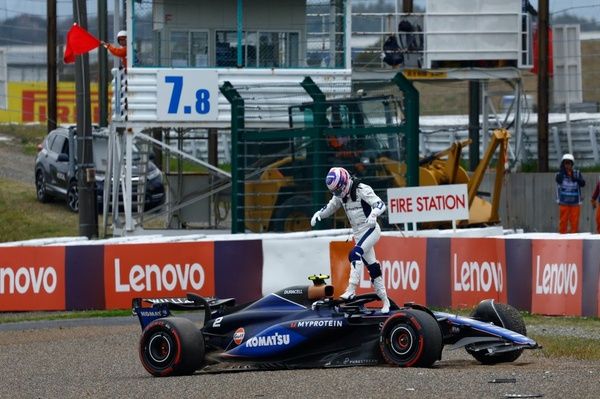F1 plans fresh clampdown on engine oil burn
Formula 1 chiefs have approved a plan for a fresh clampdown on oil being illegally burned as fuel, following suspicions that emerged about the tactic in the build-up to this season.

Photo by: Zak Mauger / Motorsport Images
Following a query from Red Bull to the FIA about the possibility of teams burning oil to deliver a power boost in qualifying – amid its suspicions that Mercedes had benefited the most from this – the FIA confirmed that such activity was not allowed.
In response to the Red Bull communication, the FIA subsequently upped its monitoring of oil usage and chemical composition of oil used by teams to ensure that no wrongdoing was taking place.
Although nothing untoward has been found, further efforts have been made to limit the scope for teams to benefit this way, and a number of changes have now been approved by the F1 Commission so they can be added to the 2018 regulations.
These rules still need to be ratified by the FIA's World Motor Sport Council, but this is normally a formality once teams have approved rule changes.
The new rules
To ensure that teams do not find a way to cleverly burn extra oil in qualifying, the FIA has introduced three key areas where the rules will be changed.
* A new regulations says that teams must supply the measurement of the oil level of its main tank to the FIA at all times of the event.
The mass of oil contained in each oil tank, with the exception of the main oil tank, must also now be declared to the FIA one hour before the start of the race.
Having this data will highlight anomalies if, for example, extra oil was being burned in qualifying than was happening in the races.
* Active control valves between any part of the power unit and the engine intake air will be banned.
With sump breather pipes now feeding excess oil back into the engine through the intake – rather than out of the back of the car as happened decades ago – this will prevent clever systems diverting this oil into the engine for a power boost.
* Teams will be limited to a single oil specification per engine at a given grand prix – which must be declared before the event gets underway.
This will prevent the possibility of teams using a qualifying oil specification for extra power, and switching to a more durable type for the race.
Engine boost
The three new approaches to limiting the possibility of using oil as fuel will help ease suspicions about this activity, even though it is unlikely to make any impact on Mercedes' qualifying brilliance.
In fact, the new focus over this winter on the area has not affected Mercedes' form on Saturdays, with its Q3 advantage baffling rival Ferrari.
Mercedes has long been adamant that its single lap pace edge comes down to brilliant engine mapping, rather than being the result of exploiting any rules loopholes.
That is why the German car manufacturer was slightly annoyed at Red Bull's suspicions earlier this year.
In response to Red Bull's request for clarification, Mercedes motorsport boss Toto Wolff said before the first race: "They have seen ghosts.. We have had for years a map that allows us to use more horsepower in qualifying. It is nothing new."
Be part of Motorsport community
Join the conversationShare Or Save This Story
Subscribe and access Motorsport.com with your ad-blocker.
From Formula 1 to MotoGP we report straight from the paddock because we love our sport, just like you. In order to keep delivering our expert journalism, our website uses advertising. Still, we want to give you the opportunity to enjoy an ad-free and tracker-free website and to continue using your adblocker.















Top Comments